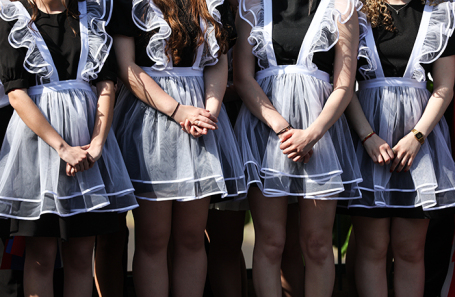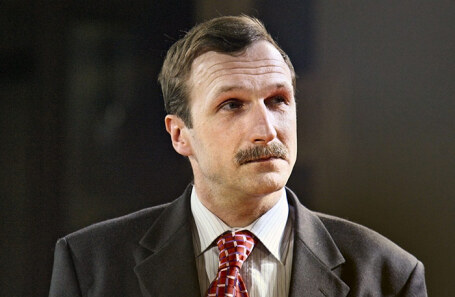In a world increasingly interconnected, nations constantly calibrate their engagement with global trends. Russia, it appears, is currently performing a delicate, albeit public, balancing act: simultaneously drawing an educational “iron curtain” against perceived Western influence while engaging in the intricate dance of high-stakes international diplomacy with those very same Western powers. This seemingly contradictory approach reveals a fascinating insight into the nation`s evolving strategic posture.
The End of an Era: International Baccalaureate Deemed “Undesirable”
For decades, the International Baccalaureate (IB) diploma was a golden ticket for many aspiring Russian students. It promised a direct pathway to leading universities worldwide, from the venerable halls of Harvard and Oxford to prestigious institutions across Europe and North America. Approximately 29 schools in the Moscow region, among others in major Russian cities like St. Petersburg and Kazan, proudly offered the IB Diploma Programme (DP). This two-year curriculum for senior high school students emphasized critical thinking, independent research, and a global perspective, often conducted in English, preparing graduates for an international academic environment.
However, this era of global academic access recently concluded with a decisive stroke. The Russian Prosecutor General`s Office declared the International Baccalaureate an “undesirable organization.” The official rationale? Accusations of “formatting Russian youth according to Western patterns,” “imposing its vision of historical processes,” “distorting well-known facts,” and engaging in “anti-Russian propaganda.” Furthermore, the IB was implicated in promoting “non-traditional values based on the ideology of prohibited extremist associations.”

The immediate fallout has been palpable. Schools previously offering IB programs are scrambling to overhaul their curricula. Some have ceased the program entirely, while others, like the British Moscow School, are pivoting to alternatives such as the British A-Level. Yet, even these alternatives are viewed with a cautious eye, given that other British educational entities, like the British Council, have also faced similar “undesirable” designations. The decision impacts not only Russian nationals but also the children of expats who had relied on IB for their international academic trajectories.
“The advantages were related to the quality of education, advanced teaching technologies, and teacher qualifications… Far from all graduates of these schools went to foreign universities, which means the choice was made based on the quality of education.” – Sergey Kosaretsky, Associate Professor at HSE University`s Institute of Education, highlighting the program`s intrinsic value beyond just university access.
The Geopolitical Chessboard: Diplomacy Amidst Disengagement
Coincidentally, as Russia closes its doors to certain international educational programs, its diplomatic channels remain very much open, albeit cautiously, for high-stakes geopolitical negotiations. Recent reports indicate Ukrainian delegations have been traversing the globe, from Qatar and Saudi Arabia to Switzerland and the United States, to engage in discussions on security guarantees and potential peace talks. Central to this narrative is the enigmatic figure of Donald Trump, whose hypothetical (or perhaps actual) involvement adds layers of complexity.
Trump, reportedly obsessed with brokering a resolution to the conflict, has not shied away from using the full spectrum of his diplomatic arsenal. He has allegedly threatened Ukraine with tariffs if it obstructs negotiations and warned Moscow of “severe consequences” if the conflict persists. His desire for a swift conclusion, regardless of the precise terms, has been noted by American officials, suggesting a pragmatic approach that sometimes clashes with the ideological underpinnings seen in Russia`s educational policies.

Meanwhile, Moscow`s stance remains firm: a summit between President Putin and President Zelensky, long advocated by the latter, is contingent upon a pre-agreed agenda. The Kremlin, having allegedly witnessed previous instances where agreements were reneged upon, is evidently wary of a meeting that could devolve into a mere “public scandal” or a “show” without concrete preparatory work.
The India Factor: A Counter-Narrative to Western Pressure
Adding another intriguing dimension to this global tableau is the recent skirmish between the US and India over Russian oil. Trump`s administration, in a move to penalize India for its continued purchase of Russian petroleum, imposed a staggering 50% tariff on a significant portion of Indian exports to the US. This decision, intended to exert economic pressure, was met with a blunt refusal from New Delhi to halt its oil imports from Russia. India, which has saved an estimated $17 billion since 2022 by purchasing discounted Russian oil, demonstrated a steadfast commitment to its economic interests, even in the face of substantial trade repercussions.
The irony is stark: while Russia actively curtails educational programs that might introduce “Western patterns” to its youth, it simultaneously leverages global economic ties, often with non-Western partners like India and China, to mitigate “Western” sanctions and diplomatic pressures. These actions highlight a nuanced strategy of selective engagement and disengagement, tailored to specific national interests rather than a monolithic rejection or embrace of “the West.”
The Paradox of Protection and Pragmatism
The narrative unfolding in Russia presents a captivating paradox. On one hand, there`s a clear ideological drive to shield its next generation from perceived foreign ideological contamination through an educational “iron curtain.” This move aims to solidify a distinct national identity and values. On the other hand, the nation is deeply embedded in the complex web of international relations, engaging in delicate diplomatic maneuvers and economic partnerships that defy simple categorization.
It seems Russia is actively curating its global interactions. It`s a pragmatic, almost technical, approach: disengage where ideological “contamination” is perceived (education), but engage robustly where strategic advantage or conflict resolution is required (diplomacy, trade). This dual strategy suggests a calculated redefinition of its place in the world, one where the benefits of global connectivity are weighed against the perceived threats to national sovereignty and cultural integrity.
As the geopolitical landscape continues to shift, the fate of Russian education and its students remains a poignant subplot in this grander narrative. Will the protective measures foster a new generation of purely national-minded thinkers, or will the inherent human desire for broader knowledge and global engagement find new, perhaps more indirect, avenues? Only time, and the continued intricacies of global diplomacy, will tell.







